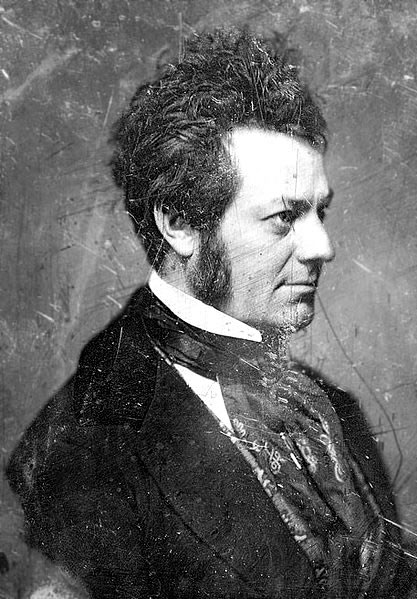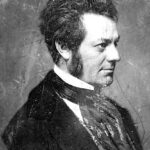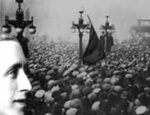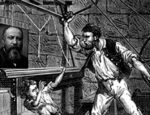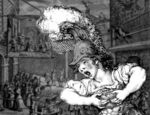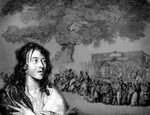Description
Meet Edwin Forrest, star actor of the North American popular stage, the first realiser and longstanding star of Robert Bird’s tragedy The Gladiator (premiered 1831). Forrest’s Spartacus was a huge hit in venues across the US, embroiled in the last decades of the struggle for the Abolition of slavery. The scene that brought the house down every time was when Spartacus, by chance pitted in the arena against his long-lost brother Senona, recognises him. Clement Foust in The Life and Dramatic Words of Robert Montgomery Bird (1919) writes that when the Thracian brothers refused to fight one another, ‘the applause would burst into riot and interrupt the action’.
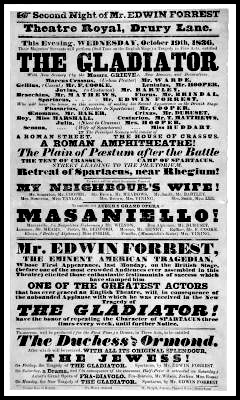
Here Forrest as Spartacus stood stripped to the waist, his great muscles flexed and bulging, his veins swollen, his jaw and neck rigid, his breath obstructed, while he calms his brother with a challenge to the throngs, “Let them come in. We are armed!” And in the lines, “We will make Rome howl for this,” such were the clang-tints and the power of Forrest’s intonation of “howl,” that it became a catch-phrase with boys in the street.’ In Joseph Haworth’s Life and Times, the class reverberations of Forrest’s popularity are clearly stated: ‘Implicit in his appearance and acting as well, were the seeds of class differences that would beset his career. His appeal was to the masses, the more genteel members of the audience found his style crude with its vulgar display of physique and unlettered readings.’

